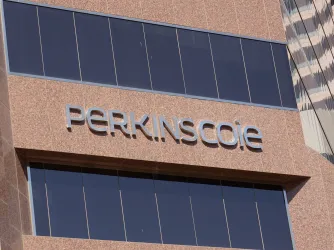Table of Contents
WWU Admits Error in Using Student Code to Investigate Protected Speech
FIRE likes to give credit where it's due when a university is forthright about errors it made in violating the rights of students. While we already commended Western Washington University last week for quickly doing the right thing and ending its investigation of student Jacob Ramirez, WWU's official response to FIRE deserves its own additional praise. That's because it makes an important point: Universities must not use their disciplinary codes as tools to summon students to account for their protected speech.
If you're not familiar with Ramirez's case, here's what happened. Jacob Ramirez found himself in trouble with WWU due to his response to being issued a parking ticket. When he paid the ticket, Ramirez wrote "Fuck the Police" on both his personal check and the ticket it was being sent with. Two weeks after sending in the ticket, Ramirez was notified by a WWU judicial officer that he was being investigated for a possible violation of WWU's "Harassment and/or Threats of Violence" policy, and summoned to a meeting on October 25, 2011. Of course, Ramirez's harmless message was nothing of the sort, and FIRE told WWU so in a letter. We noted, among other things, the Supreme Court's declaration in Virginia v. Black that "speech only constitutes 'intimidation in the constitutionally proscribable sense of the word' when 'a speaker directs a threat to a person or group of persons with the intent of placing the victim in fear of bodily harm or death.'"
A few days later, Ramirez reported to FIRE that, happily, WWU judicial officer Michael Schardein quickly ended WWU's investigation and cleared all mention of the incident from Ramirez's record in their meeting. Associate Dean of Students Sherry L. Mallory's response to FIRE confirms this and explains how WWU erred: "Mr. Schardein recognizes that he erred in using Western's Student Rights and Responsibilities Code as a vehicle to talk with Mr. Ramirez regarding his interaction with our parking staff. His intent was not to punish Mr. Ramirez for his constitutionally protected speech ...." Mallory further acknowledges that "Using the Student Rights and Responsibilities Code to talk with a student about his or her interactions with our staff was an inappropriate use of our code."
This honesty in admitting an error is not only refreshing, but also contains important lessons that I hope other university administrators will take to heart. I can hardly overstate the importance of this point, for it speaks to a common practice of university administrators that deeply chills speech on our campuses. Using the power of a summons under a university judicial code and making such meetings mandatory effectively punishes students for the exercise of their protected speech even if no official "punishment" is ultimately issued. Many, many students whose rights FIRE has successfully defended can attest to the dread such investigations portend, and it's wrong and disingenuous for universities to claim that students who receive no official sanctions have therefore faced no punishment.
Mallory notes that "In retrospect ... a simple phone call to Mr. Ramirez would have been a more appropriate venue" for discussion. Such informal discussions, when they are optional for the student and do not carry the weight of a formal investigation, are indeed far preferable.
I'll take WWU at its word that it had no intention of punishing Ramirez for his protected speech, and simply went about things the wrong way in this instance. The same cannot be said for the many other administrators around the country who have deliberately hung the possibility of disciplinary charges over students' heads in order to "make them sweat" for a few days, weeks, or even months. (One recent culprit: the University of North Carolina at Chapel Hill.) This is not Law & Order. This is a public university campus, and using disciplinary investigations to chill expression is an odious practice that violates students' constitutional rights. WWU, fortunately, appreciates this point.
Again, we praise Western Washington University's prompt response and its unqualified admission of error. More universities should follow its example.
Recent Articles
FIRE’s award-winning Newsdesk covers the free speech news you need to stay informed.

Harvard’s resistance to Trump is a model for US universities

Sixty-one media organizations and press freedom advocates contest Perkins Coie executive order — First Amendment News 466

Harvard stands firm, rejects Trump administration’s unconstitutional demands
